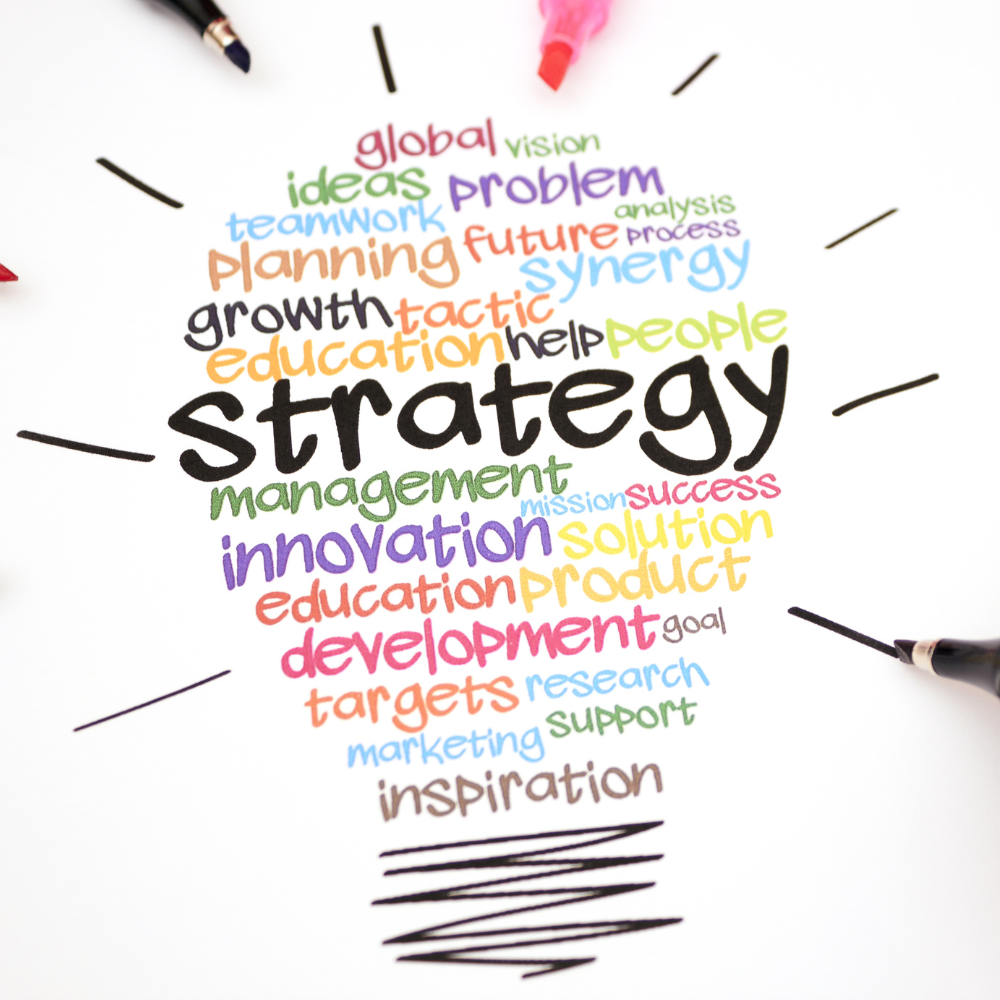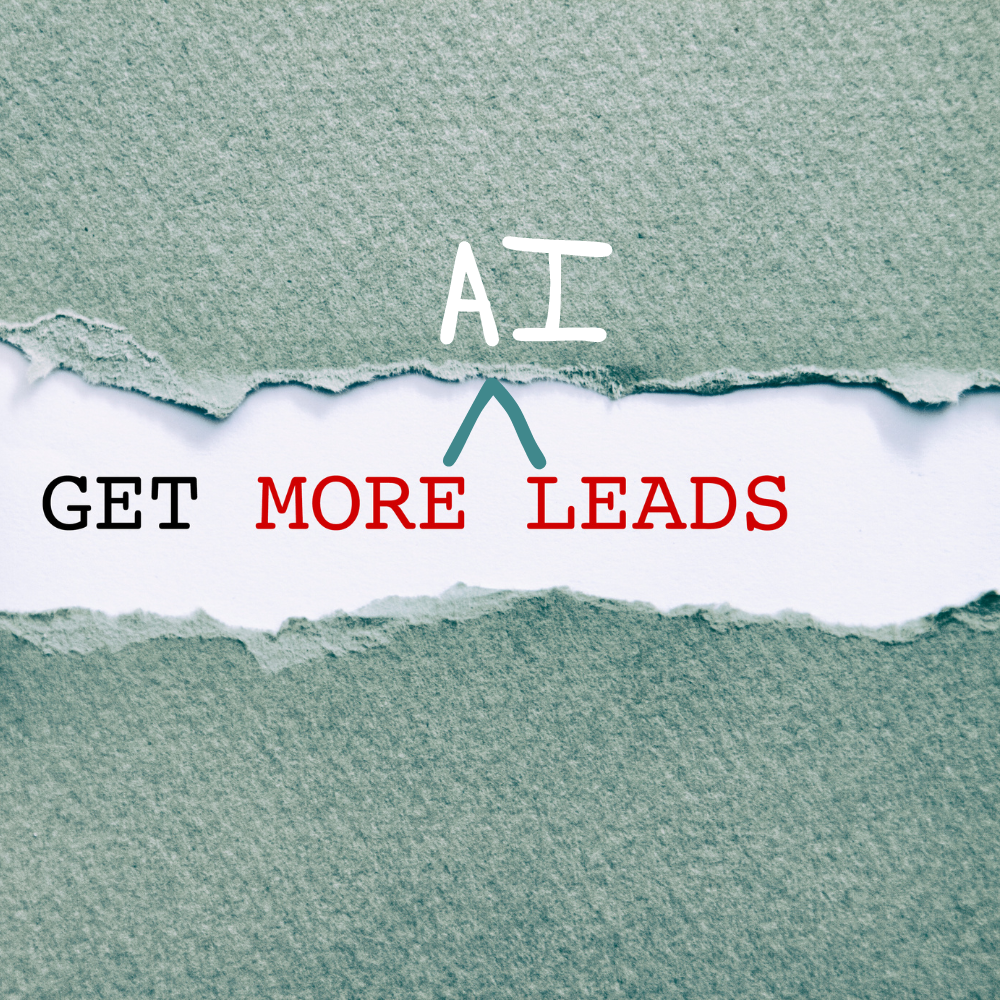In an era where AI is revolutionizing sales, businesses often grapple with finding the right balance between automation and the indispensable human touch. This article is crafted to guide small and medium-sized businesses, particularly those in trades, e-commerce, healthcare, and B2B services, towards seamlessly integrating AI without losing the personal connection that customers value.
Harmonizing AI and human elements in sales involves:
- Leveraging AI for data analysis and lead generation and content for warming up leads
- Employing humans for relationship-building and complex problem-solving
- Integrating AI tools to support, not replace, human interactions.
Key Takeaways:
- AI excels in data analysis, lead generation, and content creation, setting the stage for effective sales strategies.
- The human touch remains crucial in building meaningful customer relationships and solving complex problems with AI’s support.
- A strategic integration of AI tools can empower sales teams, enhancing their efficiency and effectiveness.
As we delve deeper into this topic, we’ll uncover actionable strategies that allow for a synergistic blend of AI efficiency and human empathy with AI in Sales. Explore how this balance can transform your sales approach, enhance customer experiences, and drive business growth.
Leveraging AI for Data Analysis, Lead Generation, and Content Creation
Data Analysis-The Power of AI in Sales
AI’s capability in processing and analyzing extensive datasets brings forth unparalleled advantages in the sales domain. It offers actionable insights that can significantly influence strategy and decision-making processes. For example, AI can uncover buying patterns, refine pricing strategies, and tailor marketing communications, thus providing a substantial competitive advantage.
Consider a scenario involving a small business in the healthcare sector. The company applied AI to examine its service utilization data and customer feedback, aiming to understand patient preferences better. The AI identified a high demand for Telehealth services that the company had not fully capitalized on. By adjusting their service offerings to focus more on Telehealth, the company could better meet their patients’ needs.
The insights gained were leveraged to enhance sales strategies, specifically by personalizing marketing efforts targeted at potential patients interested in Telehealth services. This strategic use of AI in tailoring sales messages resulted in a higher conversion rate for Telehealth consultations, showcasing the direct impact of AI-driven data analysis on improving sales outcomes and customer engagement in the healthcare sector.
Lead Generation with AI
The automation of lead generation via AI is transforming the sales landscape by enhancing efficiency and the caliber of potential leads. AI systems excel in sifting through a myriad of data points across multiple platforms, from social media interactions to website engagement metrics. This comprehensive analysis allows AI to pinpoint potential customers with remarkable accuracy, significantly elevating the likelihood of successful conversions.
In the context of a B2B services company, for instance, AI algorithms could be deployed to scan industry forums on Reddit, LinkedIn activity, and engagement with specific online content to identify businesses showing interest in services offered by the company. This method moves beyond traditional demographic targeting, employing behavioral cues and engagement patterns to qualify leads, ensuring that sales efforts are directed towards entities with a genuine interest or need for the services provided.
Moreover, AI-driven lead generation tools can continuously learn and adapt based on the success rates of previous lead engagements. This iterative process refines the lead generation criteria over time, consistently improving the quality of leads and, by extension, the efficiency of the sales process. Such a dynamic approach not only saves valuable time for sales teams but also enhances the customer journey by connecting potential clients with solutions that genuinely resonate with their needs and interests.
AI-Driven Content Creation and Lead Nurturing
AI’s impact on sales extends to both identifying leads and actively engaging them through sophisticated content creation and timing interventions. By harnessing AI, businesses can automate the development of personalized content, tailored precisely to the evolving interests and needs of each lead. This technology not only tracks interactions but also crafts and delivers content like targeted emails or customized articles, directly addressing the unique preferences of potential customers.
For instance, an AI platform could analyze a lead’s engagement with various content types and topics, then autonomously generate and send an informative article or a personalized product guide that aligns with the lead’s demonstrated interests. This level of personalization in content delivery fosters a deeper connection with the lead, subtly nurturing their journey towards a sales-ready state.
Moreover, AI tools are equipped to discern the optimal moment for human intervention, signaling sales teams when a lead exhibits clear signs of readiness for a direct conversation. This seamless handoff ensures that sales representatives engage with leads at the peak of their interest, greatly enhancing the potential for successful conversions. Through this intelligent orchestration of content creation, lead nurturing, and timely human engagement, AI significantly amplifies the efficiency and effectiveness of the sales process.
The Human Touch in Sales: Relationship Building and Problem Solving
The Importance of Human Connection
Despite the remarkable capabilities of AI in enhancing various aspects of the sales process, the human element retains a pivotal role, particularly in fostering trust and rapport with customers. The nuanced understanding, empathy, and personal attention that sales professionals bring to the table are invaluable. These human qualities are especially necessary in sectors where personal service and deep customer relationships are the hallmarks of business success. In such contexts, the ability of salespeople to connect on a human level can be the deciding factor in customer acquisition and retention.
Sales professionals leverage their emotional intelligence to interpret and respond to the subtle cues customers give, something AI is currently unable to replicate. This ability to read between the lines allows sales teams to adapt their approach in real-time, providing a personalized experience that resonates with each customer. For example, in a consultation, a skilled salesperson can gauge a customer’s hesitancy or enthusiasm and adjust their pitch accordingly, a level of adaptability that AI has yet to achieve.
Moreover, the human touch in sales extends to the after-sales service, where customer loyalty is often solidified. Sales professionals maintain relationships, check in with customers post-purchase, and provide ongoing support, all of which contribute to a sense of community and belonging among customers. This ongoing engagement is crucial in creating brand advocates and fostering a loyal customer base that values not just the product or service, but the entire experience of being associated with the brand.
Humans in Complex Problem-Solving
AI’s proficiency in offering solutions is grounded in data, but it falls short when it comes to the empathy, creativity, and nuanced understanding inherent to human interactions. Sales professionals shine in these areas, crafting customized solutions that truly resonate with the unique circumstances and needs of each customer. This human-centric approach to problem-solving not only addresses the immediate needs but also anticipates future challenges, thereby building a foundation for long-term customer satisfaction and loyalty.
In the realm of complex sales, particularly those involving high-value products or services, the role of sales professionals becomes even more critical. They navigate intricate negotiations, understand the subtleties of each deal, and provide creative solutions that align with both the customer’s needs and the company’s offerings. For instance, in a B2B scenario involving complex service agreements, a salesperson’s ability to understand and align with the client’s business goals can make all the difference in closing a deal.
Lastly, human sales professionals excel in creating and nurturing relationships that transcend transactional interactions. They invest time in understanding their clients’ industries, challenges, and aspirations, which allows them to position their offerings not just as products or services but as integral solutions to their clients’ overarching goals. This depth of engagement, characterized by mutual respect and understanding, is something AI cannot replicate, highlighting the indispensable value of the human element in sales.
Integrating AI Tools to Support, Not Replace, Human Interactions
AI as a Tool for Empowerment
In the context of AI in sales, it’s crucial to view AI not as a replacement for human sales professionals but as a powerful tool that enhances their capabilities. By automating routine tasks such as data entry, lead qualification, and initial customer inquiries, AI allows sales teams to dedicate more time to the aspects of their role that benefit most from human insight, such as building deeper customer relationships and tackling complex sales scenarios. This shift not only increases the efficiency of the sales process but also elevates the job satisfaction of sales professionals by enabling them to focus on more meaningful and impactful work.
Moreover, AI can provide sales teams with advanced insights and recommendations based on data analysis, which can inform and refine sales strategies. For example, AI tools can analyze customer interaction data to identify the most effective sales tactics or suggest the best times to contact leads. This data-driven approach empowers sales professionals with actionable intelligence, making their customer interactions more strategic and, ultimately, more successful.
The empowerment of sales teams through AI tools also extends to personal development. With AI handling mundane tasks, sales professionals have more opportunities to hone their skills in negotiation, empathy, and strategic thinking—competencies that AI cannot replicate. This not only enhances the effectiveness of the sales force but also contributes to a more motivated and engaged team.
Creating a Synergistic Work Environment
The successful integration of AI in sales processes hinges on creating a synergistic environment where technology and human expertise complement each other. Strategic integration means deploying AI in ways that enhance human interactions rather than diminish them. This requires a thoughtful approach to technology adoption, where the chosen AI tools align with the sales team’s goals and workflows, and genuinely augment their capabilities.
Training is a critical component of this integration. Sales teams need to be equipped not only with the technical know-how to use AI tools but also with an understanding of how these tools fit into the broader sales strategy. Effective training programs can demystify AI for sales professionals, showcasing how AI analytics, lead scoring, and automated content can be leveraged to their advantage. This education fosters a culture of innovation within the sales team, encouraging members to explore and adopt new technologies that enhance their performance.
Furthermore, fostering a collaborative environment where feedback from sales teams on AI tools is actively sought and valued is essential. This feedback loop can guide the ongoing refinement of AI tools, ensuring they remain relevant and beneficial to the sales process. By involving sales professionals in the development and iteration of AI tools, businesses can ensure that these technologies are practical, user-friendly, and genuinely supportive of the sales team’s efforts, thereby enhancing the overall effectiveness of AI in sales strategies.
Forging the Future with AI in Sales
Embracing AI in sales while preserving the irreplaceable human touch forms the cornerstone of modern sales strategies. This harmonious integration ensures that businesses can harness AI to enhance efficiency and precision in data-driven tasks, while sales professionals focus on cultivating relationships and solving complex challenges. Such a balanced approach not only aligns with the dynamic needs of today’s customers but also propels businesses toward enduring growth and innovation. To explore how AI can revolutionize your sales process and to craft a tailored strategy that leverages the best of both worlds, we invite you to Schedule a Strategy Session with Inkyma.
How does integrating AI with human interaction improve the sales process?
Integrating AI with human interaction enhances the sales process by automating routine tasks, providing data-driven insights for more informed decision-making, and allowing sales professionals to focus on building deeper customer relationships and addressing complex problems. This synergy between AI and human expertise leads to increased efficiency, higher quality leads, personalized customer engagement, and ultimately, more successful sales outcomes.



























